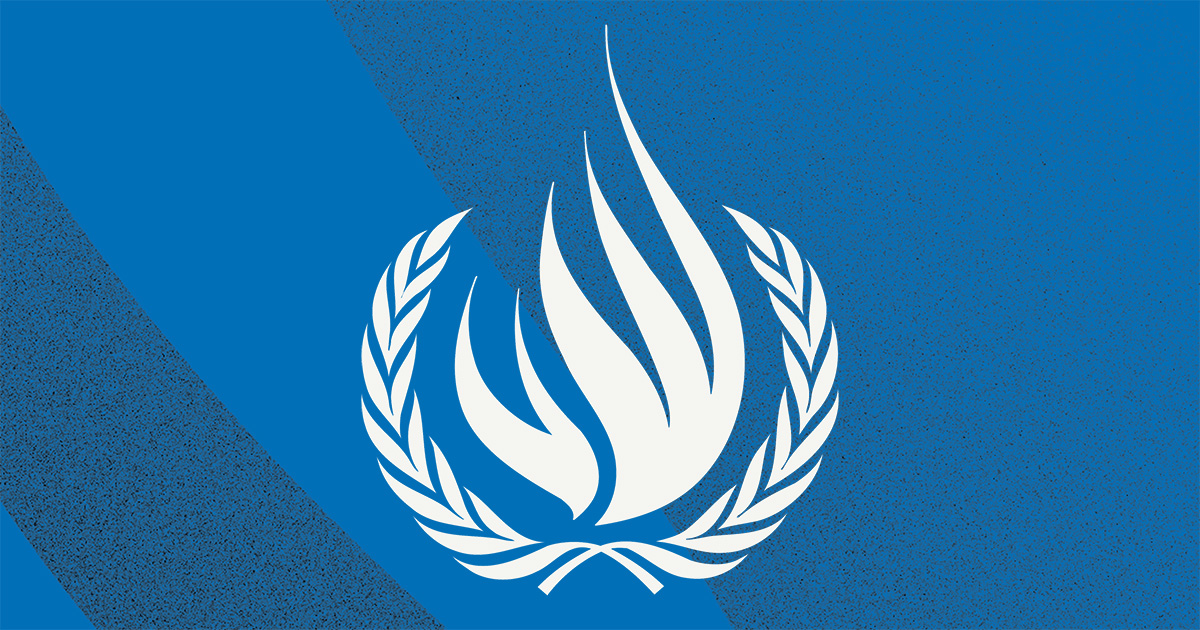
GENEVA - Women in Poland are facing severe human rights violations due to restrictive abortion laws, with many forced to carry unwanted pregnancies to term, seek unsafe clandestine procedures, or travel abroad for legal abortions. The harsh restriction had reportedly contributed to several preventable deaths, UN women’s rights experts said today.
In an inquiry report published today, the UN Committee on the Elimination of Discrimination against Women (CEDAW) concluded that the criminalisation of assisting women in obtaining abortions, coupled with the very minimal legal exceptions and frequent practical inaccessibility of services, results in the denial of safe and legal abortion to the majority of women in Poland seeking an abortion.
“The situation in Poland constitutes gender-based violence against women and may rise to the level of torture or cruel, inhuman, or degrading treatment,” said CEDAW Vice-Chair Genoveva Tisheva.
Tisheva visited Poland in 2022, alongside former CEDAW member Lia Nadaria, to conduct a confidential inquiry into allegations made by civil society organizations that women in Poland experienced grave and systematic violations of their rights. The Committee received full cooperation of the Polish government throughout the proceedings.
The Committee found that Poland’s already restrictive legal framework, which allows legal abortion only when the woman"s life or health is at risk or the pregnancy results from a crime, is further undermined by serious implementation flaws. These include that doctors frequently hesitate to perform abortions, even when legal, due to fears of criminal liability, often delaying the procedure until the woman’s life is in immediate danger. Additionally, many doctors refuse to perform abortions on moral or religious grounds, making it even more difficult for women to access safe abortion services.
The Committee also underscored that access to abortion in cases of pregnancies resulting from crimes is severely hampered by a complex and victim-unfriendly bureaucratic process, which is further aggravated by powerful anti-abortion lobbying groups, threats and denunciations against those assisting women seeking abortion.
“Together, these factors create a complex, hostile and chilling environment in which access to safe abortion is stigmatised and practically impossible,” Tisheva said.
The Committee concluded in its report that the current legislation, which prevents women from exercising their reproductive choice, forces them to carry pregnancies to term, endangers their health and life, or subjects them to hostile and burdensome procedures, resulting in mental and physical suffering that constitutes gender-based violence against women. It may also constitute torture or cruel, inhuman, and degrading treatment, in violation of several articles of the Convention on the Elimination of All Forms of Discrimination against Women.
“Denial of abortion is a form of discrimination against women because it withholds a service that only women need,” Tisheva said, adding that, “Women’s mental anguish was exacerbated when forced to carry a non-viable foetus to term, a situation that has worsened since a 2020 Constitutional Court ruling banned abortion even in cases of fatal foetal abnormalities.”
CEDAW made 22 recommendations in its report, including the adoption of a human rights-based approach to sexual and reproductive health and rights, notably through legal reforms towards total decriminalisation and legalisation of abortion, as well as the recognition of the right to abortion as a fundamental right.
CEDAW’s full inquiry report is available online. The Government of Poland’s responses to the report are also made
For more information and media requests in Geneva, please contact
Vivian Kwok at vivian.kwok@un.org
UN Human Rights Office Media Section at ohchr-media@un.org
Background
The Committee on the Elimination of Discrimination against Women monitors States parties’ compliance with the Convention on the Elimination of All Forms of Discrimination against Women, which to date has 189 States parties. The Committee is made up of 23 members who are independent human rights experts from around the world elected by the States parties, who serve in their personal capacity and not as representatives of States parties.










